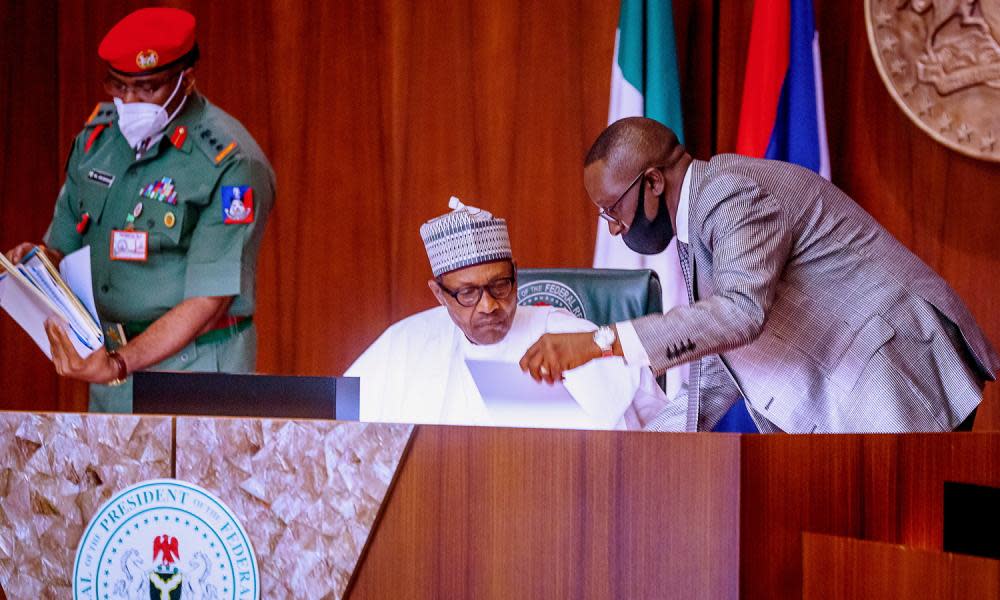Nigerian president criticised over response to protests crackdown

Nigeria’s president, Muhammadu Buhari, has been criticised for his muted response after security forces opened fire on people protesting against police brutality in Lagos on Tuesday, drawing international condemnation.
Security forces shot live ammunition to disperse crowds who had gathered in defiance of a government curfew. Amnesty International said at least 12 people died in the shooting in the Lekki and Alausa areas of the city.
Nigerian authorities denied there were fatalities, and the army said reports that its soldiers were at the scene and shot protesters were false.
A spokesperson for Buhari said on Tuesday evening: “The presidency appeals for understanding and calm.
The spokesman said the president was committed to police reforms following the disbanding of the Special Anti-Robbery Squad (Sars), a notorious police unit that was the focus of one of the country’s most forceful protest movements in decades. But he did not condemn the violence in Lekki or similar reports of police brutality across the country.
On Wednesday a group of more than 30 lawmakers urged Buhari to face the public. “We call on the president to address the nation and take concrete actions to respond to the demand of the protesters,” they said.
The protests and clampdown have captured international attention. On Wednesday the UN secretary general, António Guterres, condemned “the violent escalation on 20 October in Lagos which resulted in multiple deaths and caused many injuries”.
The US Democratic presidential nominee, Joe Biden, the UK foreign secretary, Dominic Raab, and the archbishop of Canterbury, Justin Welby, also joined widespread condemnation of the killings. “The Nigerian government must urgently investigate reports of brutality at the hands of the security forces,” Raab said, adding that he was “alarmed by widespread reports of civilian deaths.”
Twenty-four-hour curfews have been announced in 10 Nigerian states in recent days. In numerous cities, groups of young men wielding machetes, clubs and weapons have attacked the #EndSars protesters, including in the capital, Abuja.
Anger at police abuses against demonstrators and separate attacks by armed groups has fuelled further unrest, with several reported incidents of burning and vandalising at police stations, government buildings and businesses.
Related: 'They just acted like animals': anger after protesters shot by security forces in Nigeria
Chioma Agwuegbo, a youth activist, complained that Buhari “has not been visible at all”. “This is the commander in chief of the federal republic of Nigeria. The army, everyone, answers to him. Beyond the televised broadcast he made two weeks ago, we haven’t heard anything from him,” she said.
Government officials had not treated the protest movement “with the seriousness or urgency it requires,” she said. “Sars has been overhauled, dissolved, disbanded, all other synonyms, in the last five years. These promises must have clear timelines and clear frameworks for accountability to citizens. There’s no trust. And the government has not tried enough to build that trust.”


